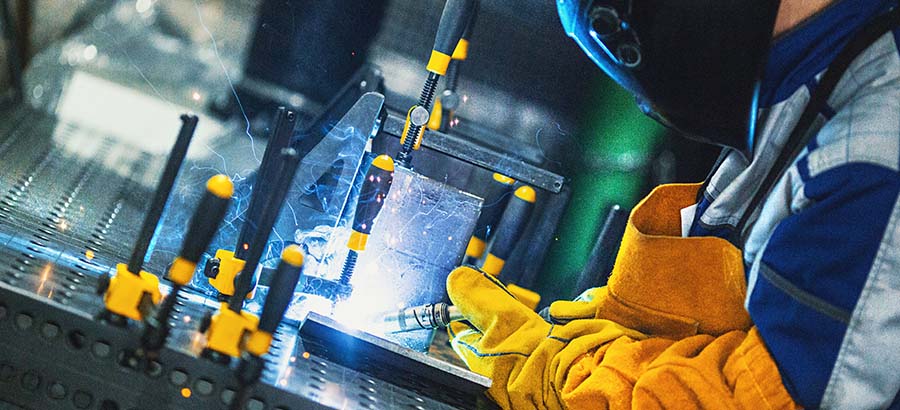The Asia-Pacific region has one of the largest number of fabricated metals manufacturers in the world. Cost efficiency, quality management and traceability are major issues for companies in this region. Many governments are also offering incentives for manufacturers to invest in energy-efficient solutions. The question company managers face is what software solution can help them keep machines busy as well as monitor performance and progress in their areas of concern.
Managing costs
With the demand for fabricated metal products growing so much, production runs are increasing as are the costs. Getting costs under control is important for a good return on capital investment and to ensure factory equipment is operating at optimum capacity and profitability.
The significant cost items are labor, materials and machinery. Because of this management require visibility of activity on the shop floor. For labor and machinery, it is important that the shop floor is running efficiently and close to capacity and that resources are being used effectively.
Manufacturers are also increasing automation on the shop floor, partly due to a shortage of skilled labor. Modern machinery is commonly fitted with real-time sensors but these are not very useful if there is no way to view and action the data from the sensors. Therefore, companies should have a system to collect and consolidate the data for reporting and analysis.
Understanding material costing requires information about procurement activities and how long materials linger in inventory before they are used to generate revenue. This requires access to what and how buyers make purchasing decisions, and the current cost of inventory in the warehouse.
The advantage of an ERP system is that all this information is available to anyone with the appropriate access authority. Using standard reports, and increasingly now via embedded analytics, the current state of shop floor productivity can be viewed. Because an ERP system unifies the data about processes across the enterprise, it is simple to:
- have visibility of shop floor productivity and costs,
- look at procurement practices and the cost of inventory to manage them better,
- verify that the correct costings are used in estimating and quotations so that profitability is maintained.
Managing quality
With market demand accelerating, many metal fabricators are managing an increasing volume of work orders. To fulfil these demands means maintaining a high rate of production while ensuring high levels of quality control — something that challenges many companies.
Quality has to be controlled in three areas: as materials arrive, as products are created on the shop floor, and before the final product is shipped to a customer. Using a quality management system ensures goods inspected on arrival meet the required standards and that products leave the factory at the standard customers expect.
By integrating machine sensor data with an ERP system, management and staff can use the information to see how much work in production is going to rework or scrap. This can be used in costing analysis and equipment profitability.
Traceability
To ensure operational efficiency and to meet compliance requirements, it is important for manufacturers to track materials from their origin, through manufacturing to the final destination. Few fabricated metal manufacturers are currently able to trace materials from end to end. This makes them vulnerable to regulatory and reliability issues, which impacts customer satisfaction and can affect the chance of additional orders.
Using the integrated data of an ERP system provides insights that make it easier to trace and analyze where defects occur. Managers can use this information to evaluate the suitability of suppliers and have a better understanding of the costs and risks of potential recalls should products not meet the required standards.
Ensuring sustainability
Metal fabricators are increasingly looking at the sustainability of their operations and the environmental impact of their products. This includes not only energy efficiency but also how to reduce waste.
An ERP system is a repository of data from all functions of the business, as well as external systems, allowing managers to have insight into optimizing processes, monitor plant operations for energy usage, and improve sustainability. Having a wider view of issues across the supply chain gives greater insight into streamlining sustainability operations.
Fabricated metal manufacturers have to find the right balance between increasing production to meet customer demand, optimizing capacity, improving throughput, cutting costs and reducing waste. This is best achieved with a modern manufacturing-oriented ERP system that can provide the information that finance managers need to monitor and analyze business operations and make decisions to ensure a profitable business.




